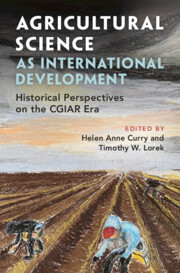Agricultural Science as International Development
For more than fifty years, international aid for agricultural research has been shaped by an unusual partnership: an ad hoc consortium of national governments, foreign aid agencies, philanthropies, United Nations agencies, and international financial institutions, known as CGIAR. Formed in 1971 following the initial celebration of the so-called Green Revolution, CGIAR was tasked with extending that apparent transformation in production to new countries and crops. In this volume, leading historians and sociologists explore the influence of CGIAR and its affiliated international research centres. Traversing five continents and five decades of scientific research, agricultural aid, and political transformation, it examines whether and how science-led development has changed the practices of farmers, researchers, and policymakers. Although its language, funding mechanisms, and decision-making have changed over time, CGIAR and its network of research centres remain powerful in shaping international development and global agriculture. This title is also available as Open Access on Cambridge Core.
Helen Anne Curry is Melvin Kranzberg Professor in the History of Technology at the Georgia Institute of Technology and an Honorary Senior Research Fellow at the University of Cambridge.
Timothy W. Lorek is Assistant Professor of History and director of the program in Global Sustainability and Justice at the College of St. Scholastica.

